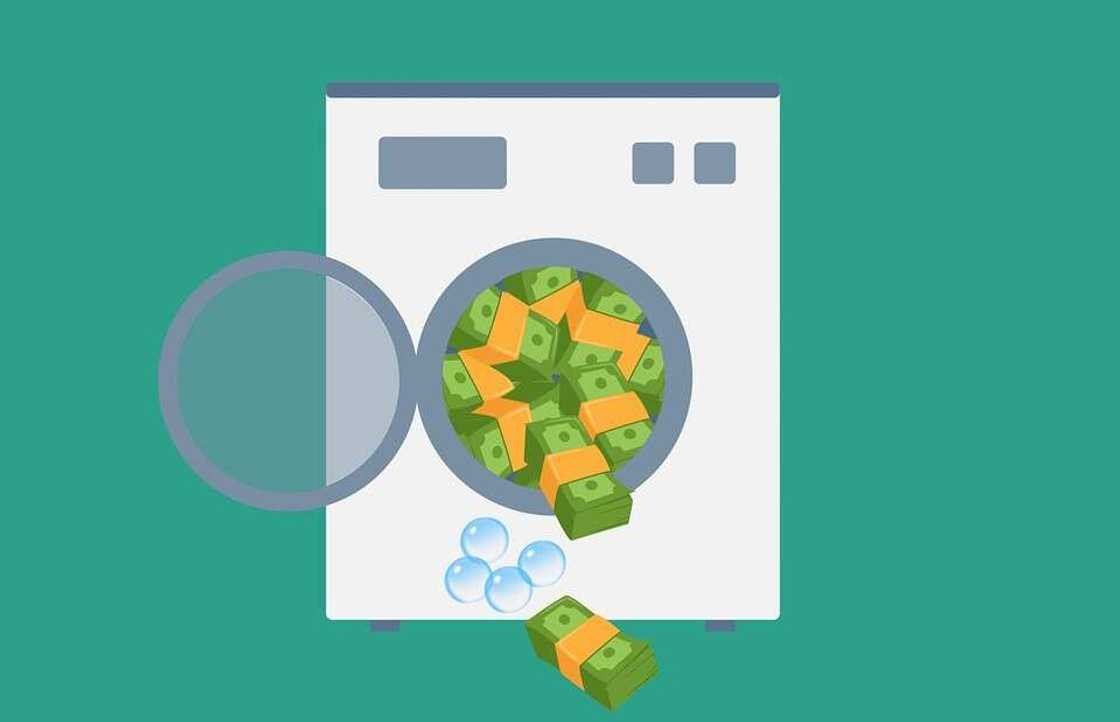In Nigeria, combating money laundering and terrorism financing is a top priority for regulatory authorities. To reinforce this effort, the government has established the Special Control Unit against Money Laundering, commonly known as SCUML.
This unit is a key component of our national Anti-Money Laundering and Combating the Financing of Terrorism (AML/CFT) regime, working closely with agencies such as the Economic and Financial Crimes Commission (EFCC) to ensure strict adherence to regulations.
Do you run a business in Nigeria that deals with cash transactions or financial services? Then you may need a Special Control Unit against Money Laundering (SCUML) Registration Certificate. Without this certificate, your business could face regulatory issues and even restrictions when opening corporate bank accounts.
How to Obtain the Special Control Unit Against Money Laundering (SCUML) Certificate in Nigeria: A Comprehensive Guide
This article breaks down what SCUML is, why it’s important, who needs it, and how you can quickly obtain your certificate without stress.
What is SCUML and Why is it Essential for Your Business?
The Special Control Unit Against Money Laundering (SCUML) operates under Nigeria’s Economic and Financial Crimes Commission (EFCC). Its primary role is to enforce Anti-Money Laundering (AML) and Combating the Financing of Terrorism (CFT) regulations, as mandated by the Money Laundering (Prevention and Prohibition) Act, 2022.
Essentially, SCUML acts as a watchdog, ensuring that certain businesses aren't used as channels for illegal financial activities. Registering with SCUML is not just a legal formality; it's a strategic move that brings significant benefits to your business:
-
Legal Compliance: It ensures your business fulfills its statutory obligations, helping you avoid hefty penalties, banking restrictions, and legal issues that can jeopardize your operations.
-
Banking Access: A SCUML certificate is a non-negotiable requirement for opening and maintaining corporate bank accounts in Nigeria. Without it, your financial operations can come to a standstill.
-
Enhanced Credibility & Trust: Registration builds immense trust with regulatory authorities, customers, and business partners. It signals that your organization operates transparently and adheres to Nigerian laws, boosting your reputation.
-
Access to Opportunities: Many government contracts, significant partnerships, and international dealings require proof of AML/CFT compliance. Your SCUML certificate opens doors to these crucial opportunities.
-
Risk Mitigation: By aligning with SCUML standards, your business significantly reduces the likelihood of unintentional involvement in financial crimes, protecting your assets and reputation from unforeseen liabilities.
-
Uninterrupted Operations: Compliance ensures your business runs smoothly, free from regulatory interruptions or scrutiny that can arise from non-compliance.
Does Your Business Need a SCUML Certificate? (Who Needs to Register)
SCUML registration is compulsory for what are known as Designated Non-Financial Businesses and Professions (DNFBPs), also referred to as Designated Non-Financial Institutions (DNFIs), and Non-Profit Organizations (NPOs). If your business falls into any of these categories, you are legally required to register, typically within three months of commencing operations.
Common types of businesses and organizations that need to register with SCUML include:
-
Dealers in luxury goods, jewelry, cars, precious stones, and metals.
-
Hotels, casinos, supermarkets, and other hospitality businesses.
-
Accountants, audit firms, tax consultants, and other financial service providers.
-
Real estate agents, developers, surveyors, and valuers.
-
Law firms and other legal practitioners.
-
Construction companies and consultants.
-
Non-governmental organizations (NGOs), religious bodies, and associations.
-
Pool betting, lottery businesses, mortgage brokers, and trust/company service providers.
If your business handles large cash transactions or falls under any of the above categories, you need a SCUML certificate.
What are the Requirements for SCUML Registration?
To obtain a SCUML certificate in Nigeria, you must provide the following:
1. Business Details:
-
Registered business name, CAC number, registration type (Company, Business Name, Incorporated Trustee, Limited by Guarantee)
-
Registered office address, sector, and main business objectives
2. Ownership & Management:
-
Full details of directors, trustees, proprietors, and persons with significant control (names, addresses, phone numbers, emails, valid ID, NIN, BVN if available)
3. Banking Details:
-
Bank name, account number, and account name for verification
4. Contact Information:
-
Official phone number, email address, and details of the authorized contact person
5. Core Documents (as applicable):
-
Certificate of Incorporation/Registration
-
CAC Status Report, MEMART, Constitution, or Partnership Agreement
-
Tax Identification Number (TIN) or Tax Exemption Certificate (for NPOs)
6. Sector-Specific Supporting Documents (where applicable):
-
Car Dealers: AMDON registration
-
Hotels: HOFA, state association, or NTDC registration
-
Casinos/Lotteries: National Lottery Commission or State Lotteries Board license
-
Audit Firms/Tax Consultants: ICAN, ANAN, or ACCA certificate
-
Estate Surveyors & Valuers: NIESV or NIQS certificate
-
Clearing & Forwarding Companies: CRFFN registration
-
Dealers in Precious Stones & Metals: Ministry of Solid Minerals permit, geologist’s certificate, NEPC or NIPC registration
-
Law Firms: Call to Bar or Legal Practicing Certificate
-
Consulting Firms: Relevant consulting certificate
The SCUML Registration Process: A Step-by-Step Guide
Although SCUML registration is free, it requires accurate document preparation and online submission. Here’s the simplified process:
Step 1: Confirm Your Eligibility
Ensure your business or organization falls under the DNFBP or NPO category. If unsure, review the eligible sectors or consult a professional.
Step 2: Gather All Required Documents
Prepare the general CAC documents (Certificate of Incorporation/Registration, MEMART or Constitution, TIN) and any sector-specific supporting documents (e.g., industry licenses, association registrations, professional certificates).
Tip: Merge all documents into a single PDF (max 2.5MB) before submission.
Step 3: Submit Your Application Online
Visit the official SCUML portal (scuml.org) to fill out the online form. Provide accurate details about your organization, ownership, banking information, and contact person, then upload your PDF file.
Step 4: Verification and Processing
SCUML reviews your submission. If the documents and details are complete, your application will be approved. Delays occur when documents are missing or inaccurate.
Step 5: Receive Your SCUML Certificate
Once approved, you’ll receive your SCUML certificate electronically. This certificate is your proof of compliance and is required for banking, contracts, and audits.
Frequently Asked Questions (FAQ) about SCUML Registration
What is the meaning of SCUML?
SCUML stands for the Special Control Unit Against Money Laundering. It is a department under the EFCC that supervises and regulates Designated Non-Financial Businesses and Professions (DNFBPs) and Non-Profit Organizations (NPOs) to prevent money laundering and terrorism financing.
Why should my business register with SCUML?
Registration is mandatory by law for DNFBPs and NPOs in Nigeria. Without it, your business could face penalties, lose access to banking services, and struggle with credibility. It’s also required to open/maintain corporate bank accounts, bid for government contracts, and stay compliant.
How can we register with SCUML?
Registration is done online at the official SCUML portal (scuml.org). You’ll prepare your CAC documents, TIN, and other details, complete the online form, and upload all required documents as one PDF. You may also use a consultant like SplashDict for faster, error-free processing.
Is SCUML registration for all businesses?
No. It is only for DNFBPs and NPOs such as real estate agents, car dealers, accountants, lawyers, hotels, casinos, jewelers, NGOs, and other specified categories under the Money Laundering (Prevention and Prohibition) Act, 2022.
How much is SCUML Registration?
SCUML registration itself is free. However, if you hire a facilitator or consultant, you’ll pay a service fee for their professional assistance.
How long does it take to get the SCUML Certificate?
If your documents are complete, processing usually takes 2–14 working days. Incomplete or incorrect applications may cause delays.
What law makes SCUML registration mandatory?
The Money Laundering (Prevention and Prohibition) Act, 2022.
How do we receive the SCUML Certificate?
Once approved, the certificate is sent electronically. If you use a consultant, they’ll also ensure you get a copy and that it’s stored safely for your records.
Where is SCUML located?
SCUML’s head office is in Abuja and it operates in EFCC zonal offices across Nigeria.
How do we track our application status?
You can check the status online using your application ID or CAC registration number. Facilitators also provide updates during the process.
What are our obligations after registration?
DNFBPs must: register with SCUML, file Currency Transaction Reports (CTR) and Suspicious Transaction Reports (STR), maintain proper customer records (KYC), implement internal controls to prevent money laundering, and cooperate with SCUML during inspections.
Are small or one-man businesses exempt?
No. If you fall into the DNFBP category, you must register regardless of business size.
What happens if we don’t register or comply?
Failure to register or file reports can result in fines, business closure, or being sealed by EFCC/SCUML.
What is a Currency Transaction Report (CTR)?
A CTR is a report filed when a customer conducts cash transactions above a specified threshold (e.g., N5,000,000 for individuals and N10,000,000 for companies). DNFBPs must submit CTRs to SCUML to help prevent money laundering.
What is a Suspicious Transaction Report (STR)?
An STR is filed when you suspect that a transaction involves money laundering, terrorist financing, or other criminal activity—regardless of the amount involved.
Ready to obtain your SCUML Certificate?
Although SCUML registration itself is free, SplashDict offers a professional facilitation service to ensure your documents are accurately prepared, submitted, and approved without delays or rejections. Here's how our team of compliance experts can help:
- Filing & Documentation: We handle all filings and required documentation for SCUML registration with the EFCC.
- Official Confirmation: Receive your SCUML Registration Certificate upon approval.
- Transparent Pricing: Our service fee covers professional facilitation; SCUML registration itself is free.
- Fast Processing: Completed within 2 to 14 working days, depending on EFCC approval.
- Secure Document Access: Your documents are securely stored online and can be accessed free of charge at any time.
- Ongoing Support: Get expert help from our Chartered Secretary and compliance team for all regulatory needs.













